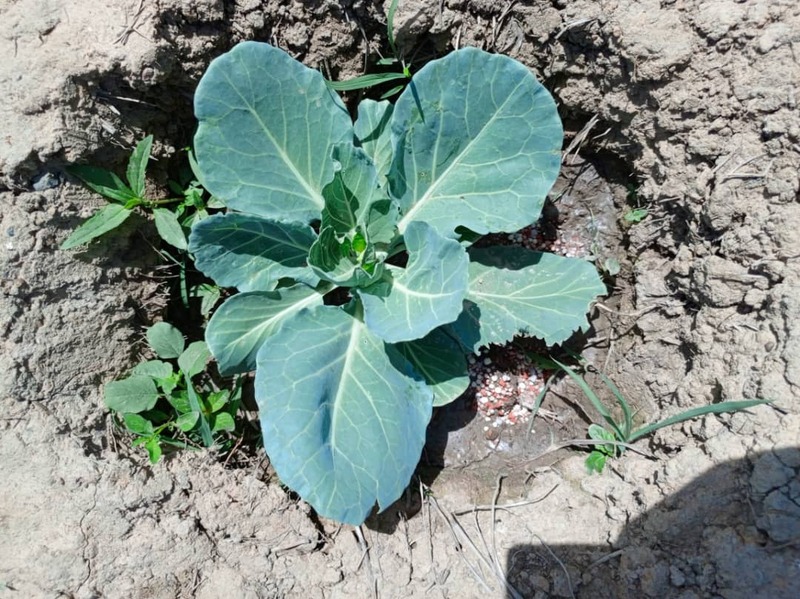Burkina Faso Farmers Embrace Zai Pits in Vegetable Production
Posted on
Farmers in Burkina Faso have found a unique gem in using zai pits as a remedy for some of the challenges they have been facing on their farms.The PlantVillage team in the country, through extensive research and consultations has introduced the farmers to the technique to boost large-scale production of vegetables.
Zai is a traditional system for rehabilitating the productivity of poor and crusted soils that involves manually digging holes to concentrate runoff and organic matter. The technique consists of digging a hole with the help of a daba (tillage tool) 10 to 15 cm deep and 20 to 40 cm on each side.

The team conducted research in the commune of Tchieriba in Dedougou, the loop of Mouhoun, where locals practice vegetable farming. They found out that wells in the area are not well built to supply water to the gardens, especially during dry seasons, and that the farmers had low production of vegetables due to water shortages.

This is a solution for adapting to climate change that ensures a reasoned and rational use of resources essential to vegetable production, especially water. The localized supply of water and nutrients improves the infiltration of water into the soil, which promotes the good development of the plant and hence an increase in yields.

With the construction of the zai pits, less labor is required for the maintenance of the plots, such as weeding, as well as a reduction in the spread of crop diseases.Despite the benefits of this cultivation technique, some farmers have been forced to abandon their farms due to infestations of fungal and parasitic diseases.
To support these producers in the fight against the diseases as well as popularize the zai technique, PlantVillage Burkina Faso has started preparing experimental plots in which they integrate biochar to assess its impact on soil and also add beneficial microbes: arbuscular mycorrhiza fungi to increase nutrients for plants and Fusarium fungi to control weeds.

Biochar is a soil amender rich in carbon that improves the pH of acidic soils and enhances the physical capacity of the soil, resulting in good water retention and a reduction in nutrients.It also promotes the development of beneficial soil microorganisms, preventing the development of certain diseases and crop pests.
Its ability to store carbon in the soil will eventually result in money being paid for storing carbon. This is an initiative by the PlantVillage youth in Burkina Faso to create jobs for smallholder farmers, resulting in sustainable agriculture and also empowering them to adapt to climate change.